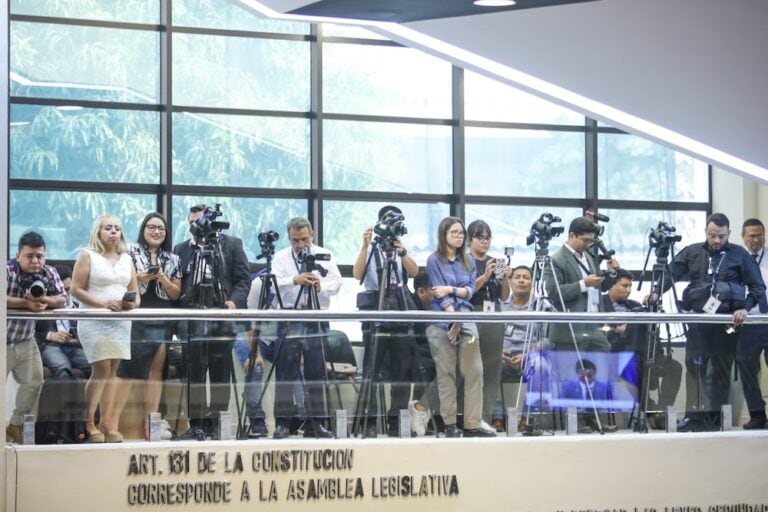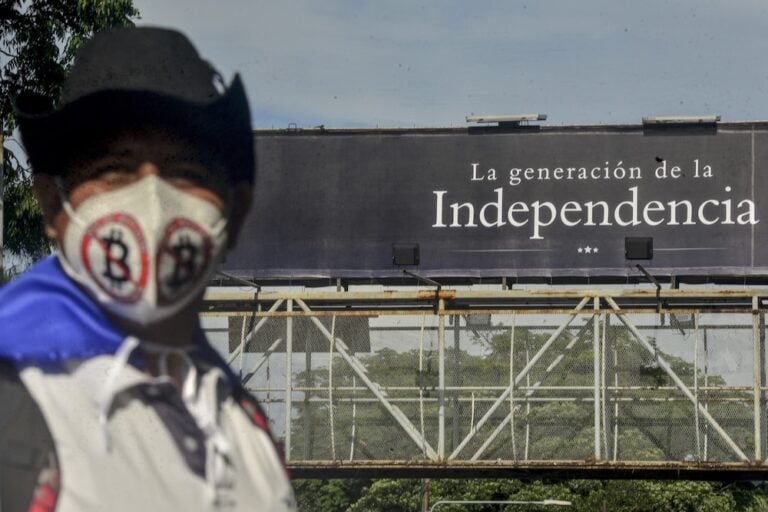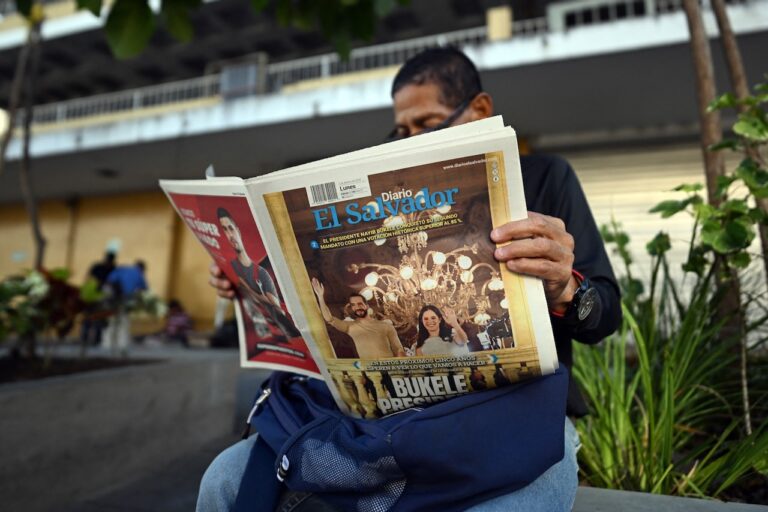(PROBIDAD/IFEX) – On 12 May 2008, a San Salvador court convicted three youths – José Alfredo Hernández, José Luis Martínez Mejía and Héctor Adalberto Ortiz Mejía, all of whom are members of criminal street gangs – of aggravated homicide in the killing of journalist Salvador Sánchez Roque in September 2007. The investigation and trial failed […]
(PROBIDAD/IFEX) – On 12 May 2008, a San Salvador court convicted three youths – José Alfredo Hernández, José Luis Martínez Mejía and Héctor Adalberto Ortiz Mejía, all of whom are members of criminal street gangs – of aggravated homicide in the killing of journalist Salvador Sánchez Roque in September 2007. The investigation and trial failed to determine the motives for the crime.
Sánchez Roque was murdered on the morning of 20 September 2007, as he was going to a corner store near his home to buy food. The three gang members intercepted him and, after wounding him with a knife, shot him dead.
Sánchez Roque was a reporter for Mi Gente, YSUCA and Maya Vision radio stations. He lived in the densely populated neighbourhood of Soyapango, in the west end of the capital, San Salvador – an area with a high crime rate.
The verdict and sentence were based on the testimony of a witness whose identity was protected by the Prosecutor General’s Office. Her testimony, along with forensic tests, allowed police to initiate a hunt for the accused, who were captured, one by one, over the following months. The last to be arrested was Ortiz Mejía, caught on 21 April 2008.
Raquel Altagracia Campos, the prosecutor in charge of the investigation, stated that the authorities had not managed to determine the motive for the murder. She commented that Sánchez Roque’s relatives had informed them that he had received threats, but that formal complaints about the threats had not been filed with the authorities.
After the journalist was murdered, his mother told the press that her son’s work had been to report on injustices and that he had been investigating extortion in the public transport sector by gang members in the area.
Despite this, no determination was made as to whether he had been murdered for his work as a journalist.
Reacting to the news of the trial’s outcome, María Silvia Guillen – director of the Foundation for Studies for the Application of the Law (Fundación de Estudios para la Aplicación del Derecho), a human rights group – indicated her disagreement with the manner in which the Prosecutor General’s Office handled the case.
“For some time now the Prosecutor General’s Office has been limiting itself to attributing the responsibility for murders to the gangs, and the case is closed when a person comes forward as a witness, without the motive for the murders being investigated,” Guillen said.
She added that Sánchez Roque’s murder follows the same pattern as the murders of at least nine other social activists since 2006, in which the Prosecutor General’s office has also not investigated the motives.
Updates the Sánchez Roque case: http://ifex.org/en/content/view/full/86939


